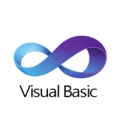NEW
Proxify is bringing transparency to tech team performance based on research conducted at Stanford. An industry first, built for engineering leaders.
Learn more
In 2024, the role of a CTO has never been more complex or demanding. Adopting cutting-edge technologies using established tools like Visual Basic for Applications (VBA) can significantly impact an organization's efficiency and innovation.
Despite the emergence of new programming languages and frameworks, VBA remains a cornerstone for automating tasks and customizing Microsoft Office applications, making it an invaluable skill for many businesses. However, finding the right VBA talent can be challenging. The ideal candidate not only masters the technical nuances of VBA but also understands its application within your specific industry context.
About VBA
Visual Basic for Applications (VBA) is a programming language developed by Microsoft. It is primarily used for automating tasks and customizing applications within the Microsoft Office suite, including Excel, Access, Word, and Outlook. Despite the emergence of more modern programming languages and tools, VBA remains widely used due to its ease of use, integration with Microsoft Office, and powerful capabilities for automating complex workflows and data analysis tasks.
VBA's integration capabilities with other languages like Python, R, and SQL make it a versatile tool for advanced data manipulation and reporting.
VBA's enduring popularity can be attributed to several factors:
- Ubiquity: Microsoft Office is ubiquitous in business environments, making VBA a practical choice for automation and customization.
- Ease of learning: VBA's syntax is relatively straightforward, making it accessible to novice and experienced programmers.
- Robust automation: VBA excels in automating repetitive tasks, enabling significant time savings and increased efficiency.
Technical skills of a VBA Developer
Certain technical skills are non-negotiable when hiring a VBA developer. Ensuring candidates possess these skills will help guarantee they can meet your company's needs.
Proficiency in VBA
The most obvious requirement is a strong command of VBA itself. This includes:
- Syntax and structure: Understanding the basics of VBA syntax, loops, conditionals, and error handling.
- Object model: Familiarity with the object models of different Microsoft Office applications, particularly Excel, as it is the most commonly automated application.
- Macros and scripts: Ability to write, debug, and optimize macros and scripts to automate tasks efficiently.
Advanced Excel skills
Since VBA is most often used within Excel, deep expertise in Excel is crucial:
- Formulas and functions: Proficiency in advanced Excel formulas and functions.
- PivotTables and charts: Ability to create and manipulate PivotTables and charts programmatically.
- Data manipulation: Skills in handling and manipulating large datasets efficiently.
Debugging and troubleshooting
A competent VBA developer must be adept at debugging and troubleshooting:
- Error handling: Implementing robust error handling to manage and resolve runtime errors.
- Debugging tools: Using debugging tools like breakpoints, watches, andImmediate Window to diagnose issues.
Integration with other applications
VBA’s power often lies in its ability to integrate with other applications:
- API knowledge: Familiarity with APIs and connecting VBA with external applications and databases.
- Office integration: Skills in integrating various Microsoft Office applications, such as automating the generation of reports from Excel data in Word or PowerPoint.
Nice-to-have skills in a VBA Developer
While the technical skills above are essential, certain additional skills can make a candidate stand out:
Knowledge of programming languages and frameworks
Expanding the pool of talent to include candidates with experience in other programming languages and frameworks like Python, SQL, C#, .NET, VB.NET, or JavaScript can be beneficial. This diversity can be particularly valuable for complex integrations, data manipulations, and potential future migrations.
An understanding of business processes
A VBA developer who understands business processes and workflows can create more effective and tailored solutions.
Data analysis and visualization
Data analysis and visualization skills can enhance the value a VBA developer brings, enabling them to create more insightful reports and dashboards.
User interface design
Experience in designing user-friendly interfaces can improve the usability of the solutions they develop.
Interview questions for VBA Developers
1. Can you explain the difference between a Procedure and a Function in VBA?
Example answer: A Procedure is a sub-routine that performs a specific action or set of actions, like formatting a worksheet or sending an email. Conversely, a Function is a sub-routine that performs a calculation and returns a value, like summing a range of cells or checking if a string contains a specific word.
2. How would you create a custom user form in VBA?
Example answer: I would first insert a new UserForm object from the VBA Editor's Insert menu to create a custom user form in VBA. Then, I would add the necessary controls, like text boxes, buttons, and labels, to the form using the Toolbox. After setting the properties and writing the code to handle the form's events, I would show the form using the UserForm.Show method.
3. Explain the concept of event-driven programming in VBA and provide an example.
Example answer: Event-driven programming in VBA means that our code responds to specific events, like a user clicking a button or activating a worksheet. For example, if we want to perform some action when a user selects a range of cells, we can write code in the Worksheet_SelectionChange event handler that gets triggered whenever the selection changes.
4. How would you handle errors and exceptions in your VBA code?
Example answer: To handle errors and exceptions in VBA, I typically use On Error GoTo blocks. The code that might raise an error goes into the Try block, and the Catch block contains the code to handle the error. I also use the Err object to capture error information and raise custom errors when necessary using the Raise method.
5. Describe the process of creating and using custom VBA functions.
Example answer: To create a custom VBA function, I would first create a new module in the VBA Editor and define the function using the Function...End Function syntax. I would write the code inside the function to perform the desired calculation or operation. Once defined, I can call the function from other parts of my VBA code or Excel formulas by preceding the function name with the workbook or module name.
6. How would you optimize the performance of your VBA code?
Example answer: To optimize the performance of my VBA code, I would first identify and eliminate any unnecessary calculations or operations. I would also ensure I use appropriate data structures, like arrays or collections, for the task. In addition, I would optimize any loops by avoiding unnecessary iterations and exiting the loop as soon as possible when the desired condition is met.
7. Explain the concept of object-oriented programming (OOP) in VBA and its benefits.
Example answer: Object-oriented programming in VBA involves creating custom classes and objects that encapsulate data and behavior. This approach promotes code reusability, maintainability, and modularity. Using classes and objects, we can create more organized and extensible applications and reuse code from existing classes through inheritance.
8. How would you automate tasks involving external applications or services using VBA?
Example answer: To automate tasks involving external applications or services using VBA, I would leverage the appropriate object models or APIs provided by those applications or services. For example, to send an email, I would use the Outlook object model; to interact with a database, I would use ADO or DAO; and to make web requests, I would use the WinHTTP or XMLHTTP objects.
9. Describe your approach to debugging and troubleshooting VBA code.
Example answer: When debugging and troubleshooting VBA code, I typically start by setting breakpoints at key points in the code and stepping through the execution line by line using the VBA Editor's debugging tools. I also use the Locals and Watch windows to inspect variable values and monitor changes. If I encounter an error, I analyze the error message and stack trace to identify the root cause and then make the necessary code changes.
10. Can you explain the purpose and usage of collections in VBA?
Example answer: Collections in VBA are objects that store and manage other objects or values. They are useful for efficiently storing and retrieving data, especially when dealing with large amounts of data or when the number of items is not known in advance. Collections provide methods for adding, removing, accessing items and iterating over the collection's contents. They can help improve code performance and readability compared to using arrays or other data structures.
Industries and applications
Finance and banking
VBA is extensively used in the finance and banking industry to streamline financial modeling, automate reporting, and manage large datasets. Financial analysts and accountants rely on VBA to perform complex calculations, generate dynamic reports, and integrate data from various sources. VBA's automation capabilities reduce manual errors, enhance data accuracy, and significantly cut down the time spent on repetitive tasks, thereby increasing productivity and allowing financial professionals to focus on strategic decision-making.
Healthcare
The healthcare sector benefits from VBA by automating patient records management, billing processes, and statistical reporting. VBA scripts can efficiently handle large volumes of patient data, ensuring accuracy and compliance with regulatory standards. Automated billing systems reduce administrative burdens and errors, while custom reports and data analysis tools help healthcare providers make informed decisions, improving patient care and operational efficiency.
Manufacturing
Manufacturing companies leverage VBA to enhance inventory management, production scheduling, and data analysis. VBA can automate the tracking of inventory levels, generate forecasts, and schedule production runs based on real-time data. This automation leads to optimized resource utilization, reduced downtime, and improved overall efficiency. Additionally, VBA's ability to integrate with other software systems ensures seamless data flow across different departments, supporting better decision-making and streamlined operations.
Consulting
Consultants use VBA to automate data analysis, reporting, and client-specific solutions. VBA enables consultants to quickly process and analyze large datasets, generate customized reports, and create interactive dashboards. This capability saves time and enhances the quality of insights provided to clients. By automating routine tasks, consultants can focus on delivering high-value strategic advice, ultimately improving client satisfaction and business outcomes.
How businesses benefit from VBA Developers
-
VBA developers bring substantial benefits to businesses through their ability to automate repetitive tasks, thus increasing operational efficiency. By scripting common workflows within Microsoft Office applications, they save valuable time for employees, allowing them to concentrate on more strategic and creative tasks. This automation leads to significant cost savings by reducing the need for manual intervention and minimizing errors, thereby improving overall productivity.
-
VBA developers can also enhance the accuracy and reliability of business processes. Automated scripts and macros ensure that data handling and reporting are consistent and error-free, crucial for making informed business decisions. The improved accuracy of data management boosts operational efficiency and strengthens the credibility of the information used for strategic planning.
-
In addition to efficiency and accuracy, VBA developers provide enhanced reporting capabilities. They can create dynamic and interactive reports that present data in a more comprehensible and actionable format. This empowers decision-makers with better insights, facilitating quicker and more effective responses to business challenges.
-
Another significant benefit of employing skilled VBA developers is custom solutions tailored to specific business needs. They can design and implement bespoke applications and tools that address unique organizational challenges, providing a competitive edge. These custom solutions streamline complex processes, improve user experience, and adapt to evolving business requirements, ensuring your operations remain agile and responsive.
Conclusion
Hiring vetted VBA developers is a strategic move that can profoundly impact your business's efficiency and innovation. When you focus on specific technical and soft skills, you can identify top-tier candidates who meet your current needs and drive future growth.
VBA's enduring strengths in automating tasks, improving data accuracy, and enhancing reporting capabilities remain invaluable assets. Leveraging these capabilities ensures your business stays competitive, agile, and poised for success in a rapidly evolving technological landscape.













